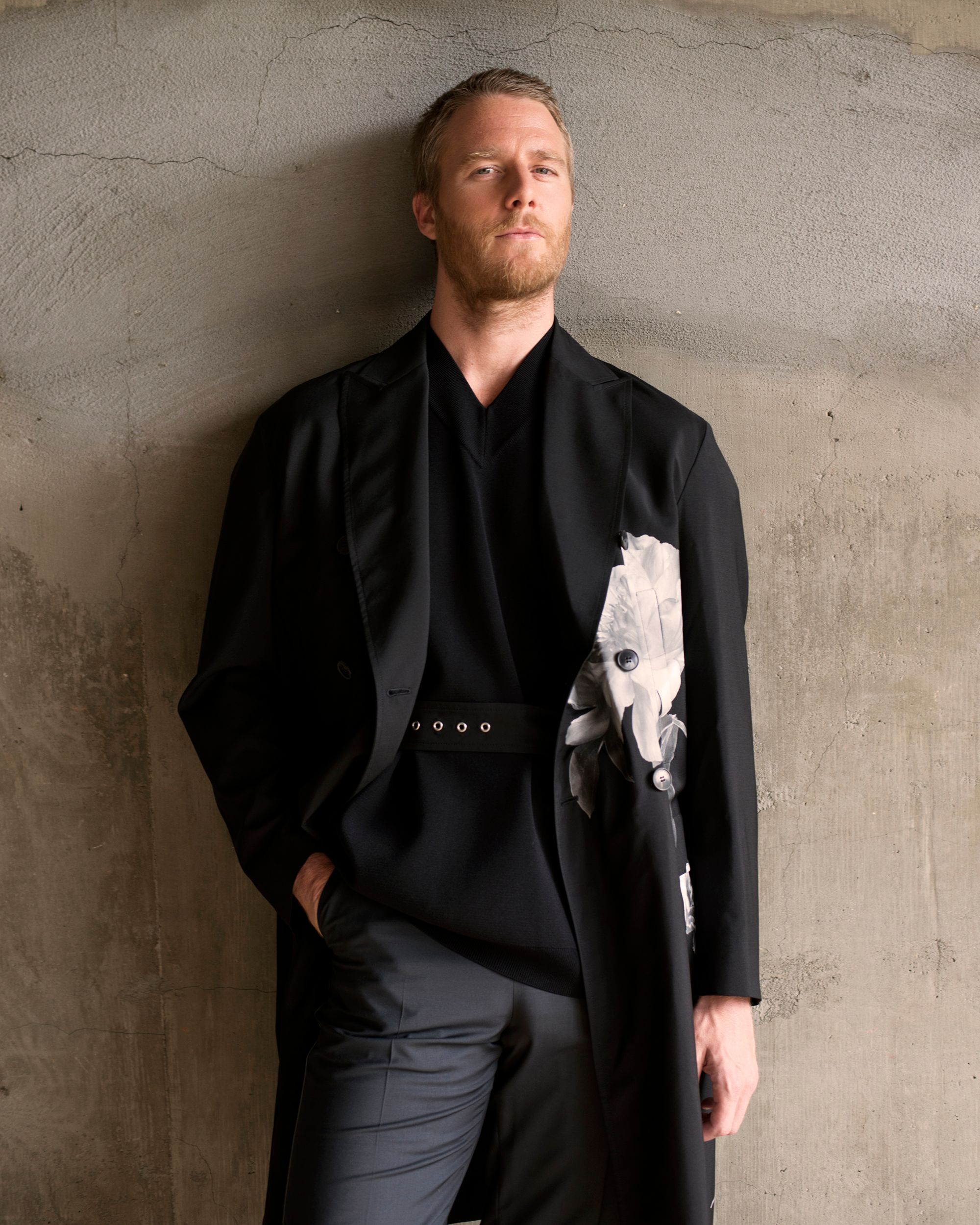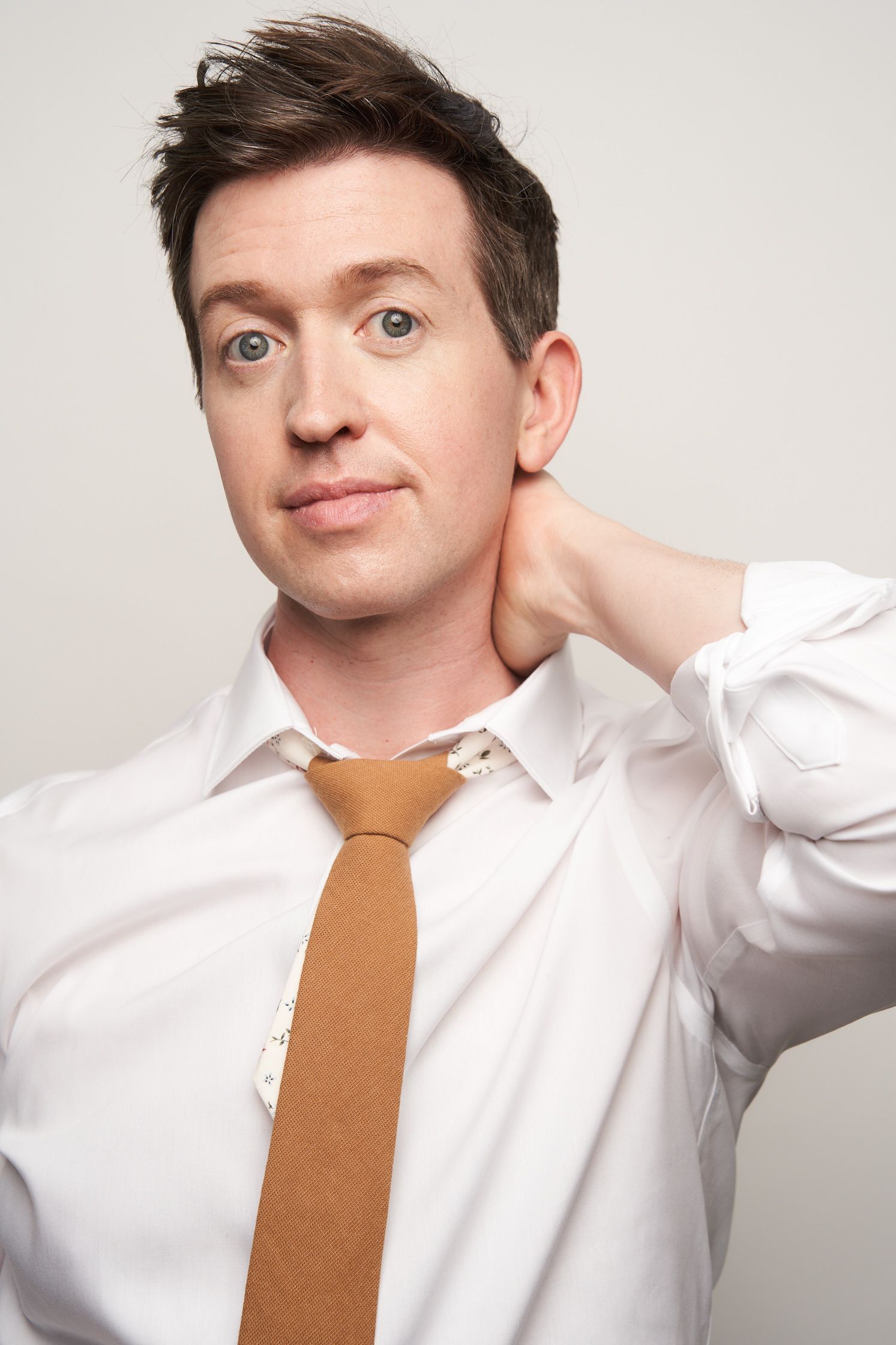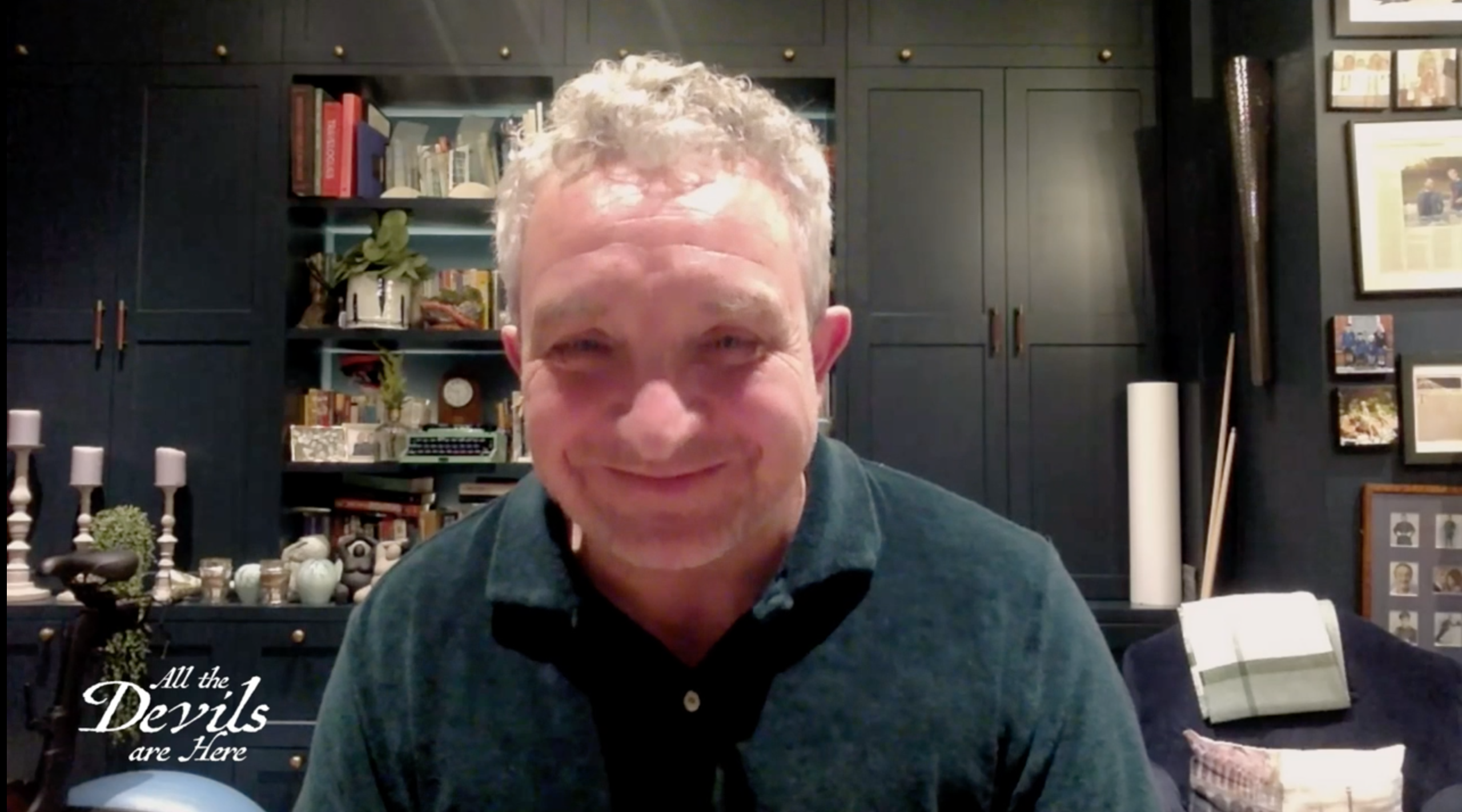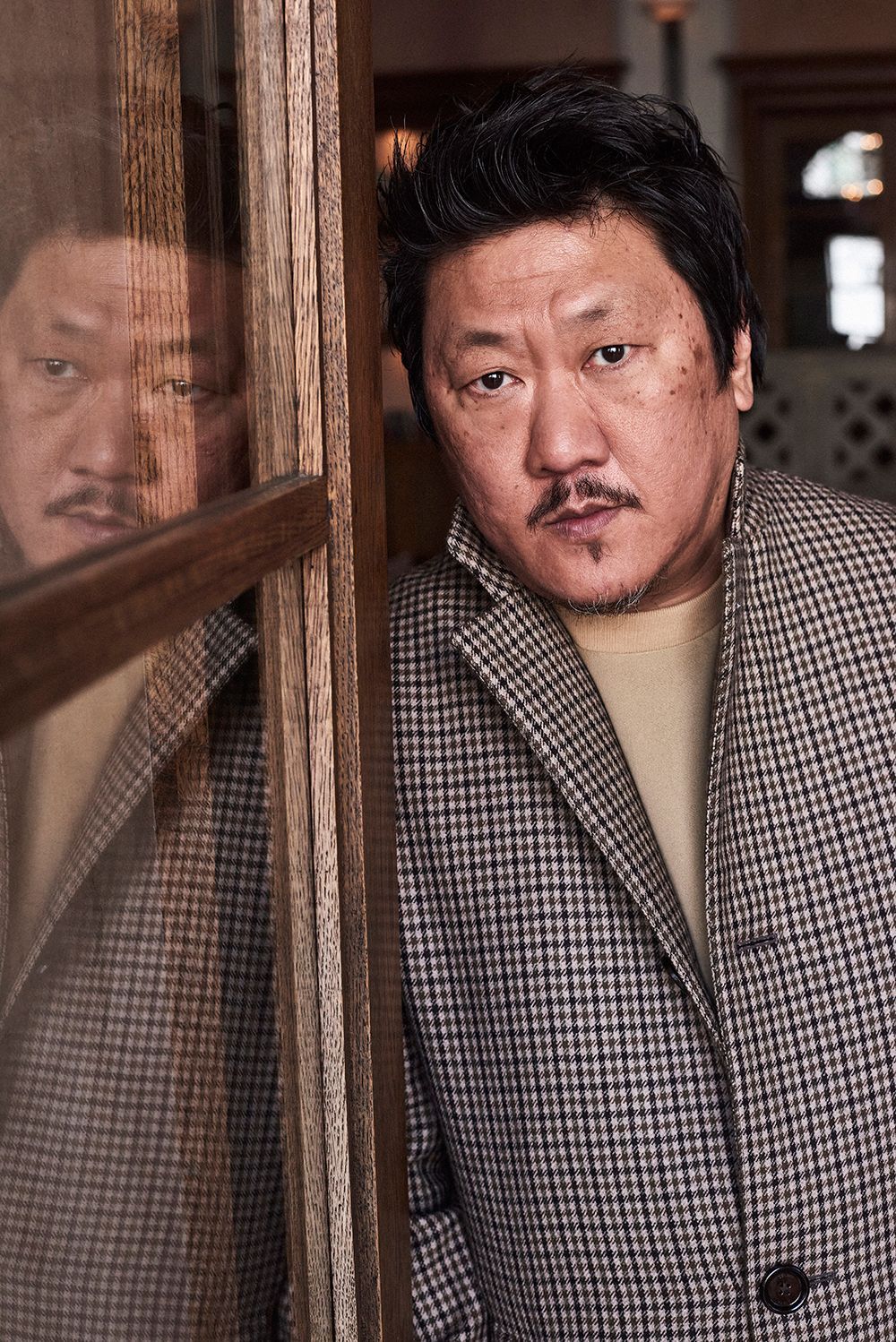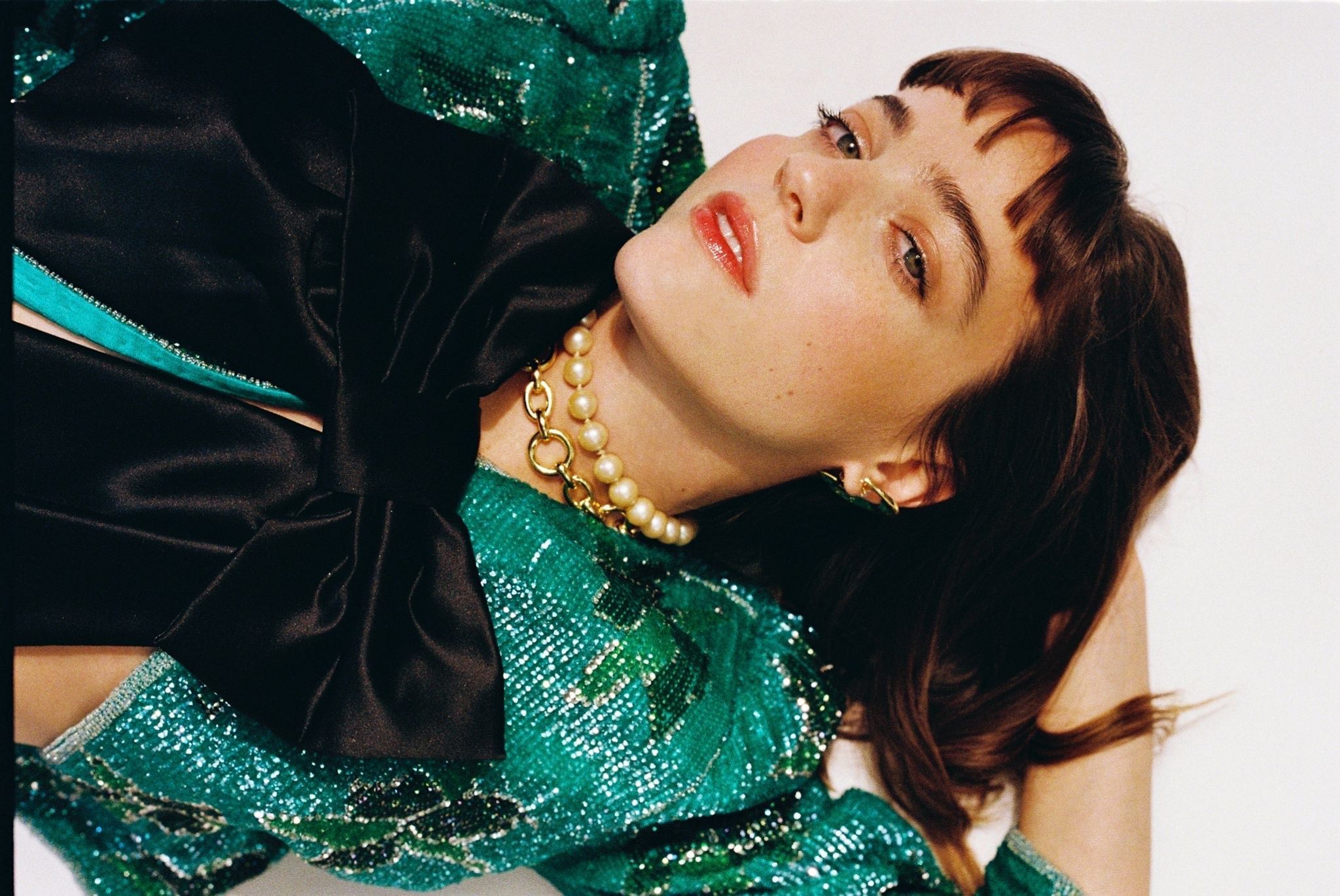‘Everybody has their own definition of success, but your job has to stay challenging, dangerous and it’s got to have a high possibility for failure. There’s probably a handful of roles that any actor could play for the rest of their careers if they’re lucky enough to make a career out of it, but that’s not the kind of actor that excites me. You know once you get into your craft, you learn so much from every project. I mean there’s a million things that I’d do differently if I’d be cast for The Right Stuff tomorrow [laughs]. It’s true that for every single job, you carry this trial and error ink and finely tune it every single time. But from my experience, there’s no point to ever stop being a student.’
Actor Jake McDorman will next be seen in the new captivating National Geographic Original Series The Right Stuff portraying the first American in space, astronaut Alan Shepard. McDorman who has moved to the city of stars when he was 16 to pursue his acting ambitions has been known for his versatility that has flourished in projects including the biographical war drama American Sniper, dramedy Ideal Home, CBS comedy-drama series Limitless, and Showtime’s drama series Shameless, to name a few.
Now, he’ll be stepping into outer space for a race that has changed the American space history, moulding new types of heroes.
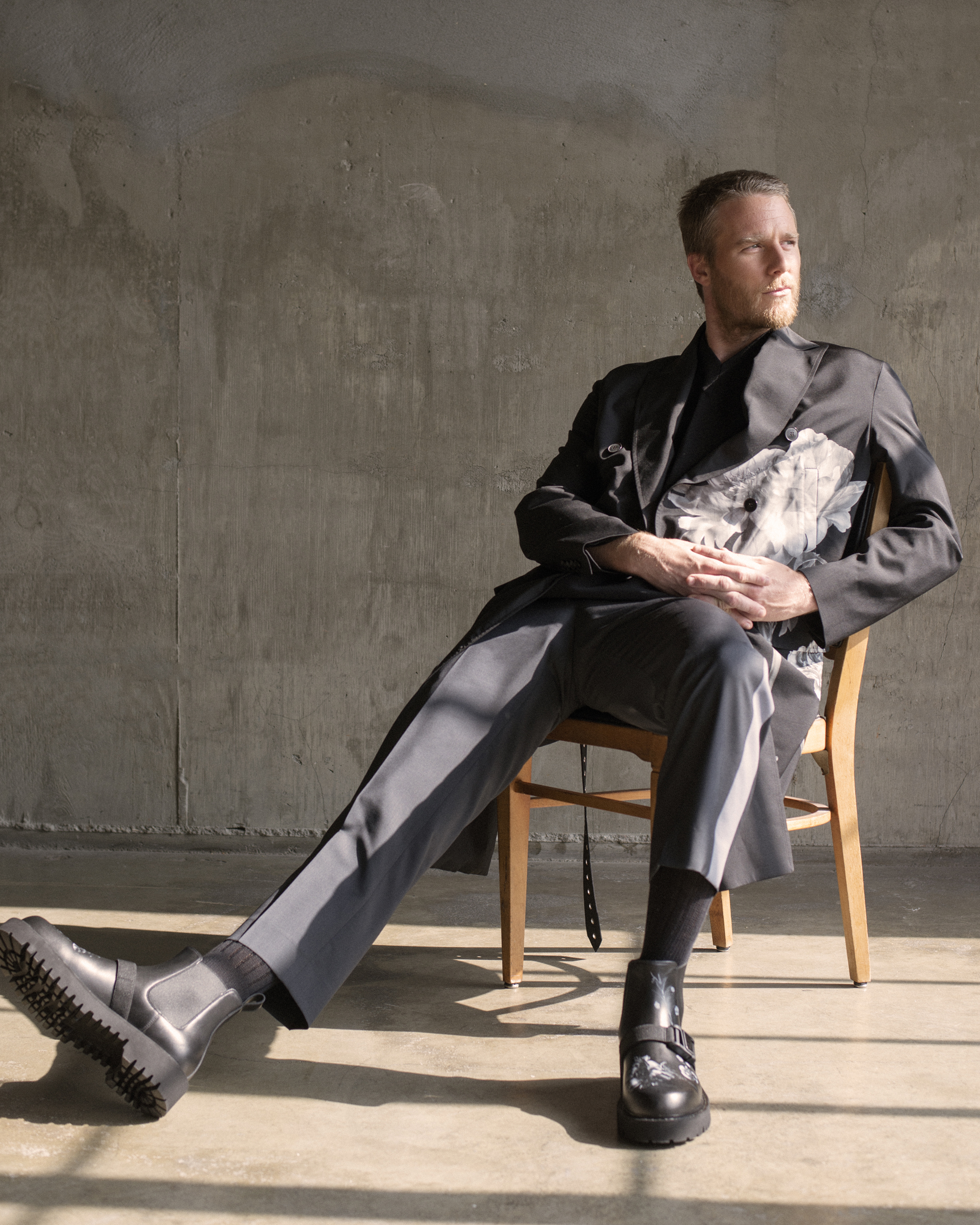
We’ll be seeing you soon in the National Geographic Original Series The Right Stuff adapted from Tom Wolfe’s bestselling novel. After watching the brilliant trailer, I’ve dubbed the project ‘Mad Men in Space’. How did you get involved with this project?
Yes, I could go on the record and say that I’d agree that it’s ‘Mad Men in Space’. The first season is set in the similar time frame of the late ‘50s, early ‘60s. It also features some incredible cinematography. As far as how I was introduced to the project, I was working on another show called Murphy Brown in the Fall of 2018. We’ve done 13 episodes, and I was waiting to hear if the show was complete. I wasn’t able to audition until I’d been released from my contract and in that time, I was waiting. The Right Stuff was the script that you started slowly hearing about from all your actor friends as you do. My friends that were able to audition told me that it was one of their favourite scripts they’ve read and asked me if I’ve been called in on it yet. Since I wasn’t available, I hadn’t been called in on really anything yet. [laughs]
Then once we’ve got the word that my previous show had been complete, it was the first audition out of the game. The script itself was just incredible. A lot of people who are attracted to the project are either big fans of Tom Wolfe’s book, fans of the movie that came out in 1983 or just enmeshed in the American space program. I hadn’t seen the movie. I hadn’t read the book at that time, but I have obviously heard about it. I also peripherally knew about the Mercury program. I was coming into this script pretty cold which I’m grateful for because I got to read it judging it solely on the merit of the writing. The script did a good job of immersing you into the world of test pilots which is an important aspect of astronauts, especially in the Mercury program. I had no idea that these guys were selected test pilots and what their life was like, what their job was like and how dangerous it was, how horrible the mortality rate was. When I read the script, Patrick [J. Adams] had been cast as John Glenn already while the role of Alan Shepard was slated to be another actor’s, so at that time I was actually reading for Colin’s [O’Donoghue] role who’s playing Gordon Cooper. It’s a great role and Colin knocks it out of the park. You know they’re all really good roles but when I was reading the script, I thought ‘Man, this is great, and Alan Shepard is badass.’
Your character, Alan Shepard, has been described as ‘furiously competitive’. But his personal story — from battling Ménière’s disease to indulging in some lunar golf — reveals that there’s more to him than his competitive surface shows. What else can you tell us about Alan Shepard?
I think most people, especially in America, know who John Glenn is. Alan Shepard is the flip side to that coin. John Glenn was already an ace pilot in the Korean War who went on game shows, talk shows and who represented this squeaky-clean American hero and really leaned into the publicity of all. The fact that we haven’t heard of Alan Shepard, yet he was still the first American in space, is a looking glass into who he is. Shepard was fiercely competitive, that’s true. He was also focused on doing his job and doing his job well and he didn’t subscribe to playing the political and celebrity game that John Glenn did and who went on to become a Senator. They were like yin and yang.
One of the things I’ve learned about the space program in general and how we’re introduced to these guys back in the ‘60s was that they’re these infallible American heroes that are going to single-handedly beat the Russians in space. They’re moral men. The Americana image. John leaned into that, but Shepard really saw the hypocrisy in it all. These guys did dangerous work for a living and that’s an understatement. They were hard-drinking, cigar-smoking, car-racing fighter jocks through and through who’ve never in their wildest dreams imagined that they’d be catapulted to the level of celebrity they were. Shepard was also an intensely private person. I think he was the only astronaut from the seven that had his biography written posthumously. Neal Thompson who was the reporter for the Washington Post was commissioned to write his obituary and upon doing so, he realised that Shepard didn’t have a book about him. And that was all by design. That’s how he lived his life. This book was an incredible source of research for me. Shepard was conflicted, though I think he’s more honest with himself than some of the other astronauts. He knows what he is and knows what he wants even if a lot of it is contradicting. Here he is wanting to achieve this incredible heroic feat, but at the same time, Shepard doesn’t want to pretend and doesn’t want to participate in holding himself up on a pedestal. All these guys had appetites that were almost completely unreliable to the American public. Did you know that 1 in 3 test pilots died? Only a very few people could relate to the way these people were dealing with death and fear and what kind of a relationship they had with both. I think that goes into what The Right Stuff is. It’s this intangible thing that makes a man or a woman qualify for these extraordinary tasks. It’s a quality that you can’t even put your finger on.

What did it take to mentally and physically prepare for this show? How much did you immerse yourself in the astronaut’s training?
Oh my God, trust me, we wanted to do it as much as they would let us. We shot the whole series in Florida so being an hour away from Cape Canaveral and the Kennedy Space Center, we’ve got to go there on tour, meet astronauts and fighter pilots. We actually drove out to the runway where the last shuttle landed before they decommissioned it. On that same runway then, and I’m going to get completely crucified for not knowing exactly what fighter jet this was that we saw take off, but it was a big one. And it was loud [laughs]. We were on the runway while this thing just roared past us, sounding like a dinosaur, shooting straight up into the sky, coming back around. We didn’t get to ride in any of the simulators. I’m sure that it’s an insurance nightmare for the cast and some 13 actors, 7 of them dressed as astronauts, to one-by-one go up and break the sound barrier [laughs].
What I’ve gathered from talking to people of whom a lot had met the Mercury 7, it was less about the ability to pilot the spacecraft, especially in the Mercury program, as with the Redstone rockets there was very little piloting involved. Their resolve and confidence in situations that anyone else would freeze up, seize up and the ability to execute a mission with a clear head was more important.
As far as me emotionally and mentally preparing for the show, this is always a joy of being an actor. You get immersed in these worlds for a short period of time and this particular period of American history is rich with resources to delve into. After we all got cast officially as astronauts, we pulled our resources together — articles, podcasts, astronaut’s individual books. Of course, I also read the ‘The Right Stuff; which I took on a 3,000 miles road trip from Los Angeles to Florida, listening to a lot of it on an audiobook and just really immersing myself into that world. Shepard was interesting. I’ve watched a lot of footage from later years of his life, years after his lunar golf mission from which you get the idea for his cadence and also hear people describe him as somebody that carried himself a certain way. All these guys had a level of braggadocious machismo that I have no experience with being an actor, and not somebody in the Military or Navy or Air Force or someone that went to space [laughs]. It all helps you know. When you take all that information and throw the script into the mix, you create this composite version of this person based on all the research you’ve done and the way that he’s been portrayed in the writing and, finally, put him on his feet on day one.
How was the experience working with the cast and the rest of the crew? Also, would you call yourself a competitive person?
Yes, I think within reason. I’ve got a competition in me when it’s a professional competition and a healthy amount of it is probably good. When you’ve got a cast this size as we had for The Right Stuff, cooperation and collaboration are key in making it work. And this cast was absolutely incredible. We got along really well, really fast. I think part of that happened because of the shooting location. When you’re working in New York and Los Angeles, I think people can retreat to their personal lives a little easier. If you work somewhere like Florida which is not that common for production, the cast becomes your social fabric and you all help each other.
Jennifer Davisson and Michael Hampton from the Appian Way [production company] were reachable and very passionate about this project. They’ve shepherded this with Leonardo DiCaprio for, God, I want to say five years before we made it down to Florida, so they were working really hard to get this made. This is the first scripted series that Leo’s company has made for television as they’ve produced brilliant documentaries that had such a high production quality before. I think this also is right up Leo’s alley. If you’d look at his choices as an actor such as Howard Hughes from The Aviator, Hugh Glass from The Revenant, or J. Edgar — he tells American stories. And again, Leo’s working to tell an American story from history.
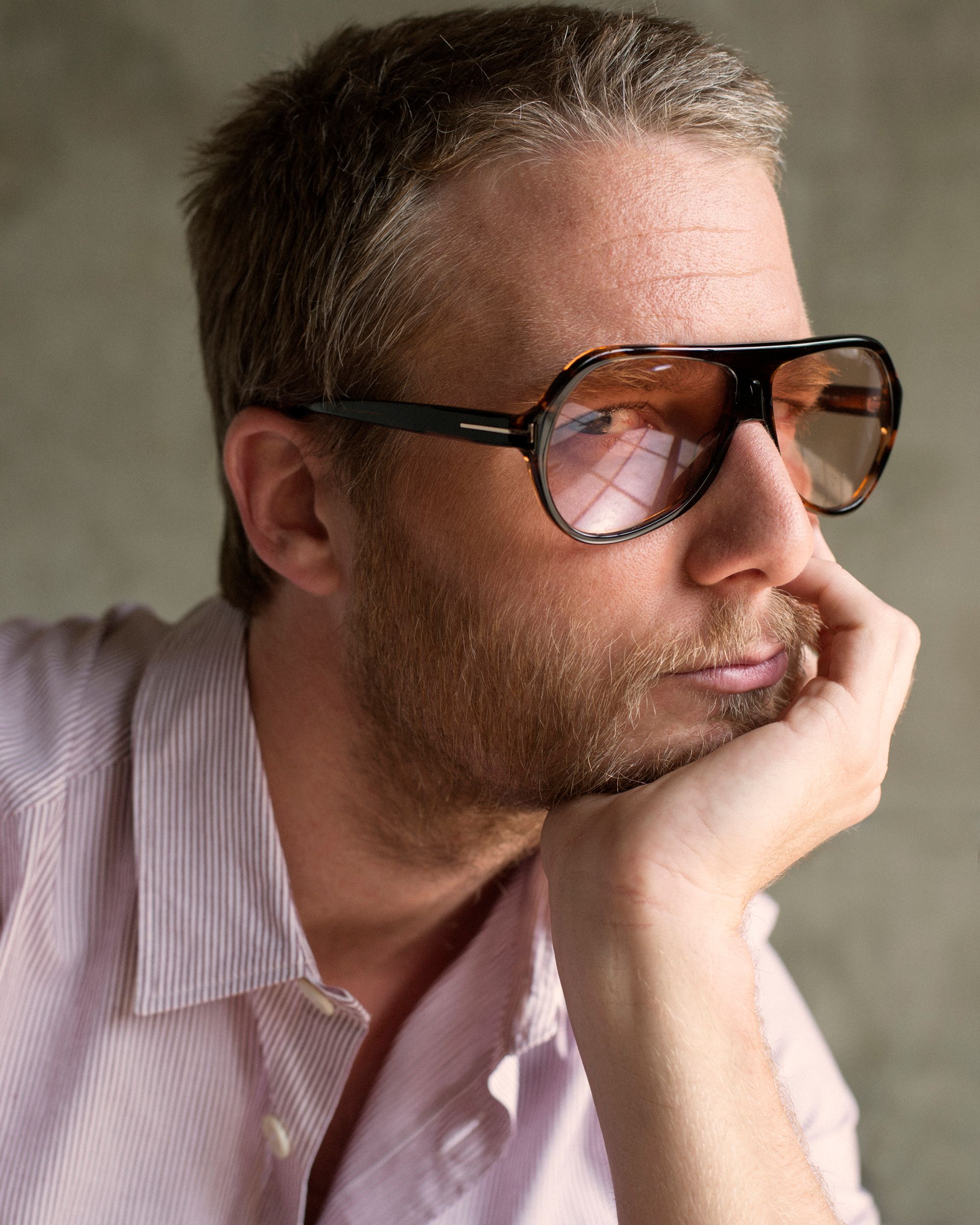
Philip Markoff, Ryan ‘Biggles’ Job and now Alan Shepard. It’s the third time you’re playing a non-fictional character aka a real-life person. How different is preparation for such roles in comparison to playing fictional characters?
The start is very different. With a lot of pressure, but by the time you get ready to put it on a speed you realise that it’s actually not too dissimilar from fictional characters. I’m not saying that there’s not more work, scrutiny or responsibility involved. But you always start from this template of the real man and all your research.
With Alan Shepard, there was a lot of it. You’re reading about him and events in his life, you’re watching clips of him at various different ages across his lifetime and then you try to let that soak in as much as you can before making any decisions creatively. Then you put the script on top of it and see what rises to the surface based on how the character version of this person is being portrayed in the work. Ultimately, it’s my job to service the script and be on a team of people that are all working to do the same with a specific story. I know that Patrick J. Adams had a similar process.
Speaking of someone as Ryan Job from the American Sniper, I’d imagine Bradley [Cooper] would also say something similar about playing Chris Kyle, there wasn’t nearly as much material that we were able to access and that could’ve helped us in learning about who they were as individuals. Luckily, we had Kevin, who was on SEAL Team 3 with Ryan and Chris, and he put us in contact with the families and also pieced together those missing pieces of the picture.
Of course, no one’s going to have as much coverage as NASA in the 1960s. That’s evolved to a level that it almost made me feel like it was the first time I’ve done that. It’s a really interesting process. It’s also really scary, but once you start to nail down some mannerisms that seem to sink up with both the real version of this person and the script version of this person, you find your own rhythm and that’s your interpretation.
What I love about your characters is that they all entail sharpness, complexity. I think a skill to brilliantly convey that comes not only through training but through movies you watch, books you read and, of course, your experiences. Which of those made you the artist you are today, and which helped to build your stamina as an artist?
I know it might sound pretentious, but this is the way it was described to me, so it isn’t my fault. I’m just kidding [laughs]. It’s proved to be true that being an actor is your tool, your instrument. Like a musician’s would be a piano, a guitar, or the writer’s would be a book of their writing. Your tool, your instruments are the accumulations of your experiences which you have to bring to the table every time. I could say that this movie was inspiring or a book I read or even this life event that happened to me, but, honestly, it all is. I guess that kind of motivated me to strive to live a rich life, full of different experiences, points of view. At the end of the day, it’s an empathic responsibility to relate and translate the emotions of people on the page. The more you keep that soft, the more you keep that accessible and fluid through your experiences as monumental as having a child or meeting someone on a subway, it all becomes part of it. Sounds so pretentious, I’m so sorry [laughs].
As far as project-to-project specificity goes, it really is a moving target every single time. The sport of it all is to hit as close to bull’s eye as you can with every project.
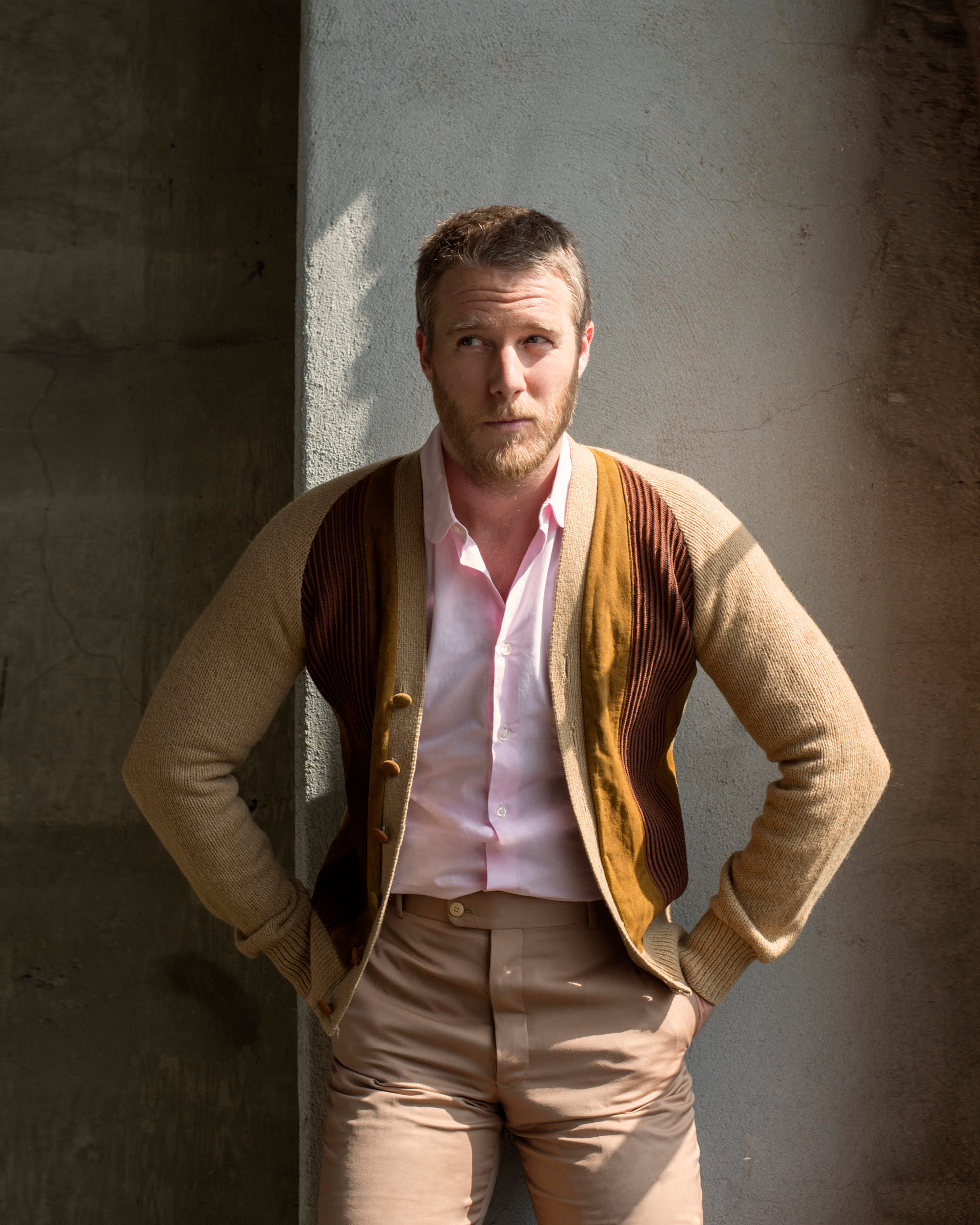
You’ve mentioned in the past that there needs to be at least a little bit of risk in acting. What risks are you willing to take for your craft, storytelling now?
I think risks in acting are characters or stories that are a stretch from who you are in your personal life. You’re sticking your neck out there and trying to convince people that you’re inherently different than how you really are. Those risks for me as an audience member have the highest reward. I love watching actors who stretch as far out of their comfort zone.
Playing Alan Shepard, there was this cadence, this voice, this whole kind of machismo that just isn’t inherent or innate to me. You look at the map of your research and realise that you have to go for that or choose the pitfall and play it safe. It’s scary to play somebody that exists. It’s scary to go after a role that you haven’t done anything like, so the people that put you in it don’t really have any evidence that you’re capable of it until you show them. All those are risks that make it really worth it. In the past couple years, I’ve been really lucky to work on jobs as such. When I was on Watchmen playing Nelson Gardner, I tried to push the limits of what I was comfortable with to try for something more exciting. But every time you do that, it’s scary and you’re out there on your own.
Another upcoming project of yours is Happiest Season. Can you reveal some details about it?
Yes, for sure! Happiest Season is supposed to come out in the cinemas on the 25th November in America and on the 27th November in the UK. It’s a movie that we shot in Pittsburgh [Pennsylvania] this year. I’m really excited about this one and the cast is absolutely fantastic — Kristen Stewart, Mackenzie Davis, Dan Levy, Aubrey Plaza. The movie was co-written by Marry Holland, who’s also in it, together with Clea DuVall who stood at the director’s helm. It’s a very cool holiday movie about Kristen Stewart and Mackenzie Davis’s relationship. They go to spend the Christmas with Mackenzie’s family who isn’t aware that she’s gay. I’d describe the movie as somewhere like The Birdcage meets Home for the Holidays.
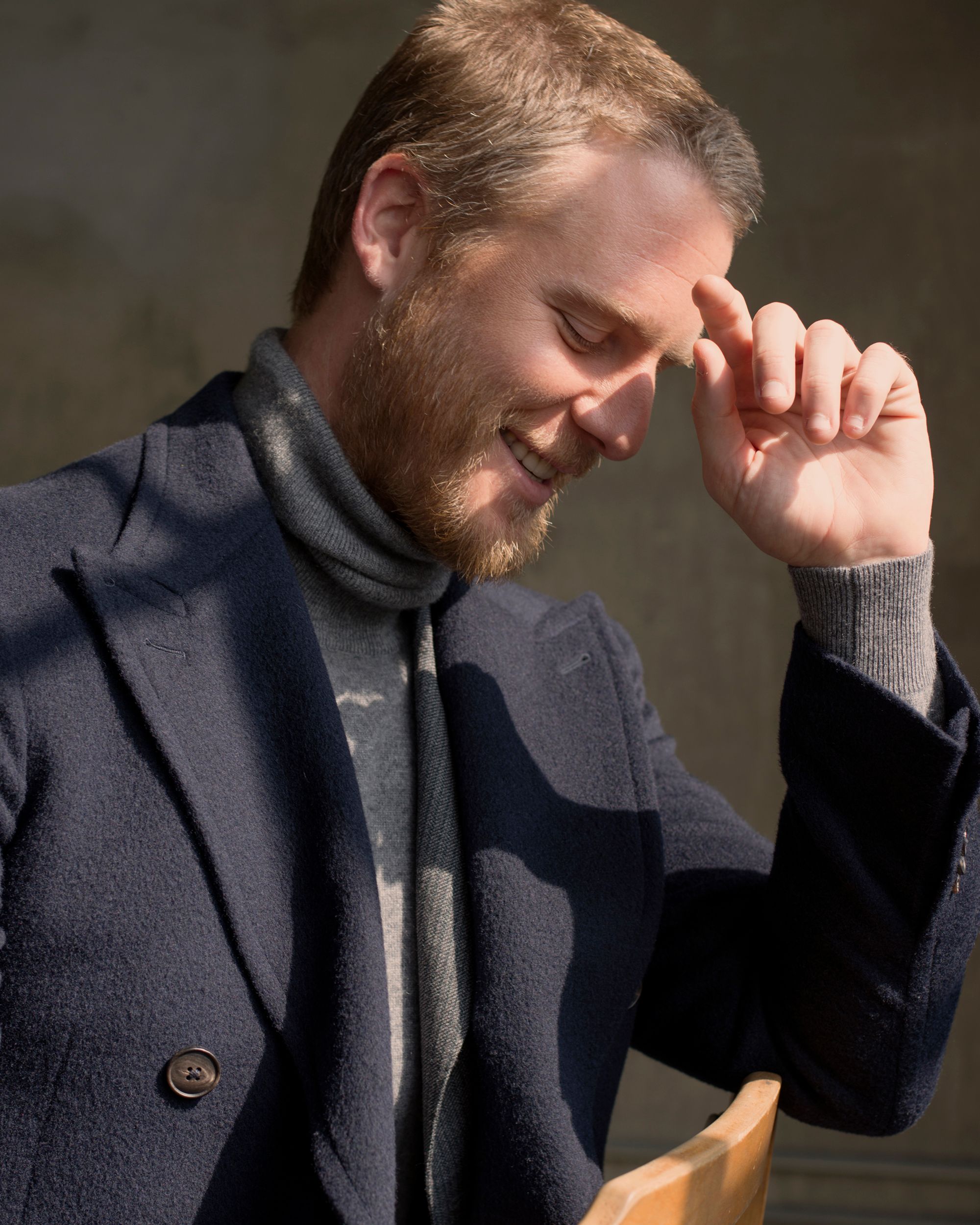
My research has discovered that you’re interested in photography, like playing your guitar, and that you’re also a foodie. It sounds like a quick-fire session to me.
What’s your favourite picture that you’ve ever taken?
Back when I was really into photography, I was shooting on film. But that was a long time ago. My first camera was a Canon AE-1 and I was learning how to develop prints in the darkroom. That was a really cool relationship with photography. I feel like I could still do it. I think I do have all those pictures on some hard drive, but not one specific comes to my mind at the moment.
Which is your go-to-play guitar melody and who’s your guitar hero?
I started playing the guitar a long time ago. At that point, it was less guitars and more bands. And I’m embarrassed by the bands I used to listen to. I’m not going to tell you. No, no. [laughs]
Now, I’ve played it for so long that when I pick up the guitar, it’s all original what I play. It’s kind of therapy for me, also is a sort of an extension of a diary. I haven’t written anything recently but yes, what I play it’s usually mine.
What’s your signature dish? Please share the details of the recipe, so we can recreate it.
There are a couple I can actually share with you. I don’t know where they are now, but one is a family recipe for Pork Tenderloin. It comes from my mom’s side of the family in North Carolina. It’s really good. I shot a movie with Steve Coogan and Paul Rudd a couple years ago called Ideal Home where Coogan played a television chef. For the wrap gift, the cast and crew members had to submit a family recipe, so the final gift was this massive cookbook. That recipe was the one I’ve shared in the book. I’ll try to find it and send it to you. Also, something that has cropped up in the pandemic is… pickles! I have a pickle recipe that we’ve been jarring. I haven’t made them in a couple of years, and then I’ve tried the recipe a month or two into the pandemic and oh, man, they’re great. I can give you both of those, pickles and pork!
Team Credits
interview by Miglė Kriaučiūnaitė
photography Raen Badua @ Exclusive Artists
styling Luca Kingston
grooming Crystal Tran @ Exclusive Artists using MALIN+GOETZ
casting + production Angeliki Sofronas
photo assistant Jojo Reyes
The Right Stuff premieres 9th October on Disney+!

